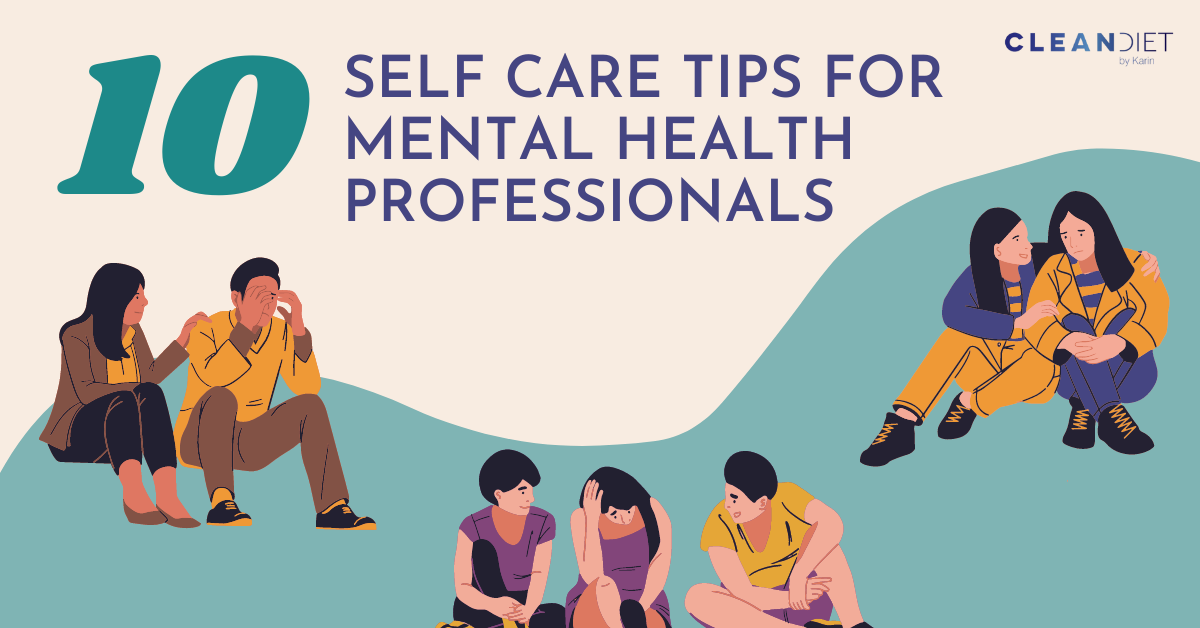It’s hard to take care of others when you don’t take care of yourself. That’s why it’s so important that mental health professionals make time to practice self-care in order to avoid burnout and increase the positive impact they have on others. While taking care of yourself doesn’t necessarily mean you neglect your responsibilities, it does mean that you make sure to prioritize your own well-being over that of others. Here are ten self-care tips for mental health professionals to help you learn how to manage stress and protect your mental health at work and home.
1) Delegate
It’s time to delegate some tasks so you can focus on improving your mental health. Consider delegating specific tasks, such as checking emails or writing reports, to a coworker or an assistant so you can spend more time on these self-care tips. Remember that it is okay to ask for help when you need it! You are not expected to do everything yourself.
2) Breathe
As a mental health professional, you’re around anxiety, depression, and other mental health issues all day long. If you’re not careful, you could end up with work and home burnout, chronic stress, or even be a risk to your clients. To practice self-care and make sure that you’re in peak condition for your clients (and for yourself), here are 10 self care tips for mental health professionals. Try one of these strategies each day to help balance your life
3) Take a walk
Your brain can’t always tell you what it needs, but your body sure can. Sometimes you just need to get up and move around for a while, especially if you’ve been sitting too long (think: at your desk). The best way to force yourself to take a break is by setting an alarm so that you have no choice but to get up. If all else fails, there are many meditation apps that allow you to break time into small increments (for example: 10 minutes of movement and 10 minutes of stillness) throughout the day. Just remember that breaking time doesn’t have to mean stopping work entirely; sometimes a quick bathroom break will do just fine.
4) Exercise
One thing that is particularly important for mental health professionals is getting enough exercise. It doesn’t have to be a crazy intense workout or anything, just getting out there and breaking a sweat for thirty minutes each day can make all of the difference in how you feel when you get home. Plus, studies have shown that people who exercise regularly tend to be happier than those who don’t. When was the last time you felt happy? It’s been long enough that I bet if you start exercising again it will happen before too long!
5) Eat well
As a mental health professional, you know that what you eat can affect your mood and energy levels. This is doubly true if you’re under stress, which we all are at some point in our careers. In order to function at our best, we need to make sure we’re eating well and taking care of ourselves physically. You don’t have to be perfect—eating well when stressed out can mean as little as three mindful meals per week (about 15-20 minutes per meal) with fresh vegetables and protein from meats or fish. Eating healthy can help keep your mood stable over time; it will also help ensure that you have more energy for better self-care later on down the road!
6) Meditate
It’s important to take time for yourself and your mental health, just like you would any other part of your body. If you’ve never taken a self-care day before, now is a great time to start. Although it might be tempting to work around-the-clock when you’re busy, it’s imperative that you step away from work now and then. That’s why it’s important to build healthy habits into your life, so they can become second nature.
7) Sleep
Getting enough sleep (at least seven hours per night) is crucial to your mental health. Sleep deprivation puts you at higher risk for anxiety, depression, and even stress-related heart conditions. And let’s be honest: Staying up all night staring at a computer screen or drinking scotch with clients doesn’t make you look like someone who really takes care of themselves. Make sure you get those zzzz’s!
8) Talk to someone you trust
One of the most important self-care tips is to talk to someone you trust. It’s difficult to be objective about your own mental health, and if you’re feeling overwhelmed or like things are getting out of control, it can be helpful to talk with a friend or family member who can help guide you through a difficult time. Even if they don’t have professional experience in mental health, their perspective may give you some much-needed clarity and comfort.
9) Get in nature
Research has shown that spending time in nature has a plethora of mental and physical health benefits. Take some time every day to sit outside. Breathe in deeply, close your eyes, and focus on breathing out all of your stress while you breathe in the fresh air. You can also add some yoga to your outdoor practice – just make sure to pack an extra set of clothes!
10) Spend time doing what you love!
Mental health professionals often neglect self-care for their clients’ sake. There is an epidemic of burnout and stress in mental health professions. It’s important to make time for yourself to keep your mind and body healthy! Make time each day to do something you love—whether it’s reading a book, going for a walk, or playing with your pet.
Breathe In & Breathe Out 
Sometimes that’s all we need to remember, is to listen to our mind & body.
When you prioritize yourself, you’re prioritizing your loved ones. Today we’re in the middle of another week – if you find yourself getting lost in work, chores or anything else, remember to take a second for yourself.A part of having a healthy body, is having a healthy mind.
I lied and said I was busy. What did you do for yourself today?







